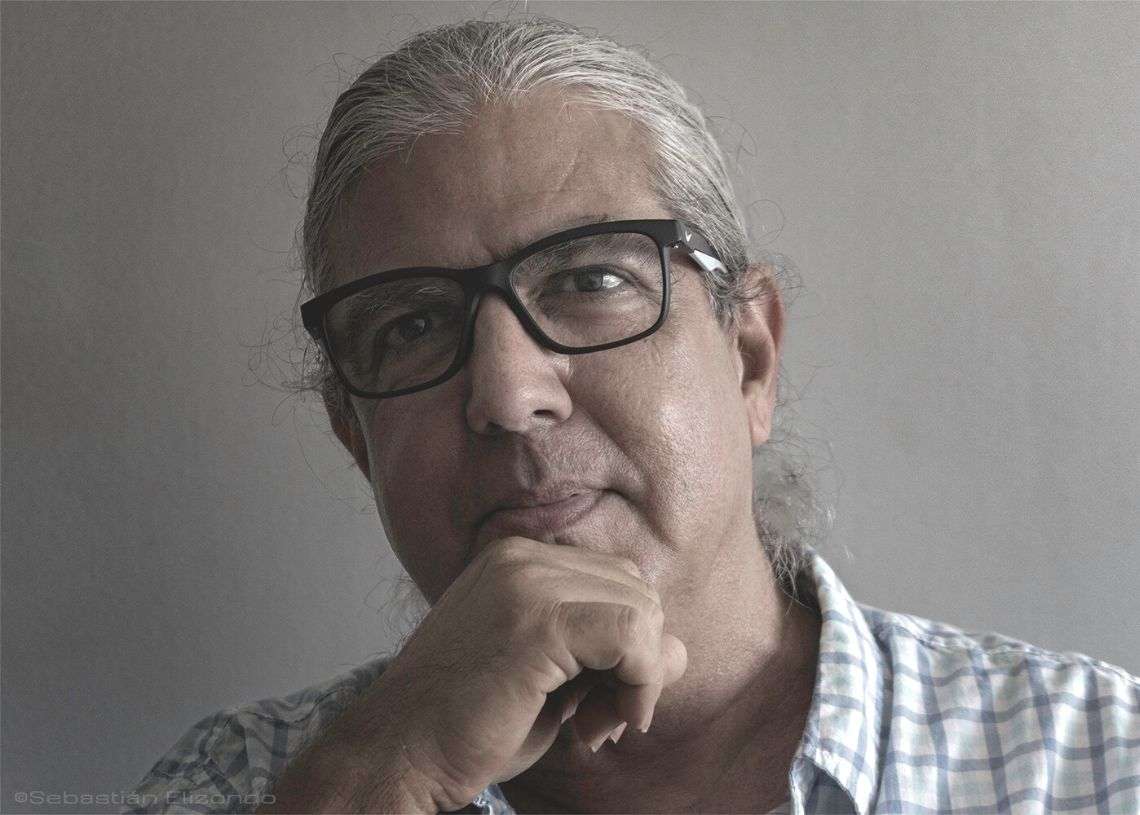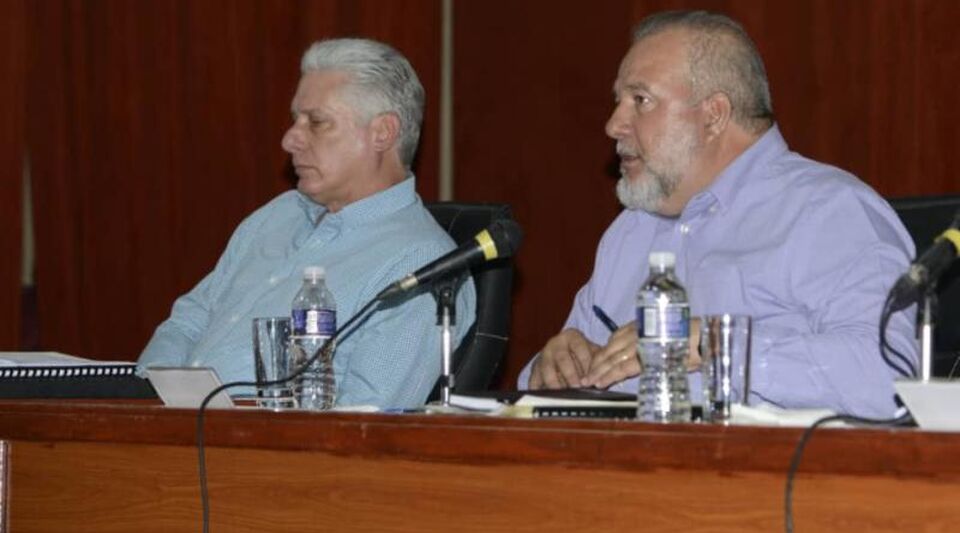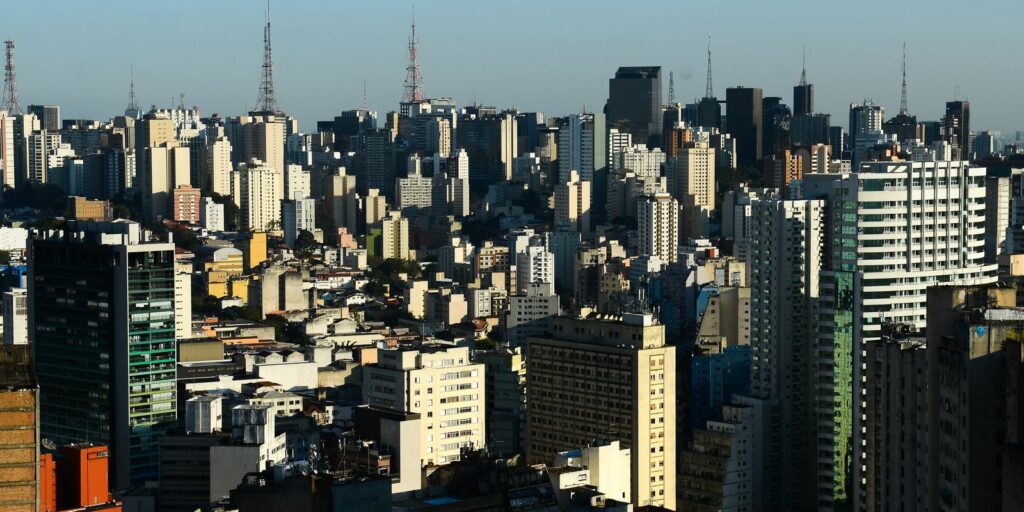The publication of a book by Ramón Fernández-Larrea is always news. For decades he has been one of the main poetic voices in Cuba: his collection of poems the past of heaven (1987), recipient of the Julián del Casal Award, marks a before and after in national poetry. It is not, as it has sometimes wanted to be seen, a bridge between generations, but a break in the verb and in the positioning before the reality of those years.
Affirmative poetry, empathetic with the social process, and not devoid of remarkable formal values, gave way, with it, to a questioning, caustic, bitter expression, which placed the man in conflict with his circumstances at the center of the gaze, but the man in conflict with himself, in a context not exempt from violence.
The RFL itself has said: “The 1980s began with the island of Cuba breaking into pieces. They were the events at the Embassy of Peru and the stampede through the port of Mariel”. Massive exodus as never seen before, acts of repudiation of people who intended to emigrate, “rapid response brigades”: hopelessness, closure of a myth, lynchings…
At that time, the readings of Fernández-Larrea focused on authors such as Evgueni Evtushenko, Hans Magnus Enzensberger, Antonio Cisneros, and Heberto Padilla de Out of the game Y Just human time. They were voices of great belligerence in the treatment of social issues and not devoid of lyrical depth.
It is around those years that our poet came across an Argentine magazine that included a report on the mental hospitals of Buenos Aires. There he met the verses of Julio Gerber, a patient, who seemed charged with existential anguish and the verbal audacity that he himself incubated in that decade:
Lord, make crude words of me,
sunny mornings in the propellers,
powerful mothers in the hawks.
Calves that never die on their knees.
And precisely from there comes the title of the book at hand: Calves that never die on their knees (Sneaky Editions, 2022).
Written in the 1980s, for reasons that would take a long time to describe, it was published in two partial editions: the chapter entitled Passion Handbook (Ed. University of Guadalajara, Mexico, 1993) and Calves that never die on their knees (City Hall of Santa Cruz, Tenerife, Spain, 1998).
Neither of the two editions had an acceptable circulation, which is why now it sees the light as it was originally conceived, without retouching the verses, nor deletions or additions of poems.
For the portico of the Canarian edition of Calves… Cuban academic Nidia Fajardo wrote:
“None of those who are faced with this collection of poems should expect madrigals with a taste of bienmesabe or guava cakes, nothing suitable for delicate palates, but rather those made with coarse salt and rum without ice. It would seem that these poems are written under the claim of Virgilio Piñera: ‘You have to bite, you have to scream, you have to scratch. I have given orders’.” (Portrait of a friend made from memory).
And so it is. From end to end of the collection of poems, the word vociferates, is braided into images that range from surprise to bewilderment; strokes our ears, squeezes (squeezes) our hearts with “violent tenderness”. I cite almost at random a fragment of a poem that reflects the harsh experience of the Angolan War:
“…there were beautiful showcases in the world
and tiny fingers in the garbage of Luanda”
(“Manuscript found in Guanabacoa”).
Love-themed poems are frequent in the book; only that you have to detect them under the blasphemies: “…the policemen who were investigating the case / found your fingerprints in my spilled cough / ancient fire on the sheet of eternal animals / that eat the things of happiness // in the archives They did not have photocopies / of your fingers, your teeth, your anonymous heart / but my corpse kept your gaze / and even the blush of your hips” (“Manual de vida”).
It is difficult to discern in the work of Ramón Fernández-Larrea where the civic impulse ends to give rise to the subjectivity of the deepest self. He has always proposed to say everything with no other commitment than with poetic truth, that field of sensitive dazzling where the reader recognizes what he would have wanted to write, because “it is like that”, although until then he did not know it.
Ediciones Furtivas does a great service to Cuban literature, not only with the publication of this early and fundamental book by RFL. In its brief but good catalog (the publishing house was founded in 2019), the names of Reina María Rodríguez (Docks), Jose Kozer (Imago World V) and Carlos Pintado (the red tree); and the narrators Abilio Estévez (The image in the mirror), Alejandro Querejeta (The deep blue of the air) and Evelio Traba (will you come with me).
![]()
A small sample of this book is highly recommended.
POEM FULL OF HEROISM
soldiers eat soup on Tuesdays on Thursdays
sometimes there are sardines in the aluminum tray
always before the rigorous ecstasy of a Saturday
in which mulattics come out of glass to scratch
in a hole in the night grass
the soldiers put on a crude shirt
They take care of you and me and the corners and the pores
they go by shouting from a truck their young rage
the soldiers are sometimes a few years old
the dignified old men look at them with a pleased expression
like thinking what a magnificent life
and in speeches they are something like heroes
but who the fuck puts the soldier as a soldier
with his murderous iron to have no eyes or girlfriends
not to have lunches on sundays
to be an animal without teeth and thirsty
but who the fuck gets it out of the hole
of his deadly maneuvers
It doesn’t matter that there’s steak and it’s not the soup
greasy and sad tuesday
the soldier is there in his perpetual hollow
and the old people look at him happy and clean
as if to say what a magnificent life
someday there will be no gods or dogs or soldiers
Let them scream from a truck or spit at the moon.
SOMETHING ABOUT THE MASAI WARRIORS
WHITE NIGHTS AND LOVING SPEECHES
infant mortality has decreased in recent times
but the salary is nothing new
with the salary one has to buy illusion for the son
has to keep the grocer happy
pay for the weapons of mud sundays
one must have a uterus
in the uterus fits a spear of the masai
could be the great wank
to avoid painful thoughts
all day in that lion straw
humming something beautiful something that distracts you
do a safari without peepers
a journey to infinity with carlos marx in the eyebrow
to visit the bars of Havana
imagining that one has dollars
and not the impure salary of taking the son on Sundays
and explain things about infant mortality
that you do not believe everything that appears on the screen
and tell him, boy, be a bricklayer or a postman
Maasai warriors were my good friends
communism is not on the next block
and etcetera and etcetera and etcetera.
SINGING IN THE SHOWER
I’m beautiful I like the body I grew up in
I am sexual and I immerse myself in the water
I am beautiful and sad and I have bulging veins
like everyone who suffers his blood
I have walls to resist
in a fallacious century where people look at each other
with a hidden fear
I’m beautiful and I’m not afraid of rotting
on the midday mattress
I sing while I can I scream while my tongue helps me
I caress bristling I write I drink the soup
I am beautiful I am alive thanks to God and the stars
genes and other crap
at dawn I resist
the hurtful desires to return to the jungle
I avoid dawn with the face of a tiger
I am beautiful it hurts to be breathing
with so much glass inside with my annoying cough
with so many wet fingers where the claws grow
I’m beautiful and I hum and smoke
against the troops and the black heralds
who watch over my toasted body
for the satisfaction of the little beasts
I am a man who dries tears
with the house robes that smell of smoke
with mothers day postcards.
DEATH OF THE FOOL ON THE HILL
drank big slices of sun
his feet his gallbladder the tiny veins in his eyes
They were full of light and sobriety
knew a lot
knew the butterfly schedule
the words people didn’t say
when hugging folding the eyelashes
he was out there on his piece of land
On the gentle hill where I could breathe
staring at the spinning wheel hour after hour
knowing what the birds of men thought
never lied
he never had the day to put on a tie and smile
fill out stupid papers with your mother’s name
he was out there looking at everything with that kind of disdain
that one has in his eyes when he sees the horizon.
II
today they slaughtered the fool on the hill
they made him vomit all the light
and left their tongue without treasures
then there were bubbles on top of the stones
where his face watched the glare
they took out of his stomach until the last stars
that still beat their lives
today they slaughtered the fool on the hill
War is surely coming.
JENNY THE GENIUS
who’s my genius jenny what’s my time for genius jenny
It can be you or what you have been and it never comes back
what will be the face of Jenny the genie in the future fog
what cloud brings up that jenny the genius
what are his eyes to kill me
who is my jenny the genius how my lips without her
I’ve always looked for Jenny the genius
it can be you or the other one that never murmurs
the grass against the air of the first race
you can be the genius
that traversing the circle has lost its eyes
whats my jenny the genius my leopard angst
answer please that you are Jenny the genius
even if it’s a lie dagger
a little letter from god
POETS HANG FROM THE SKY
To Benjamin Moloise
burning fruits in the summer the arms of poetry
they begin to hurt to say no more
to simply be in the peepholes
the unicorns left the clandestine birds of the fables
Two feet and tongue remain, two rivers and catastrophes are born
the door has been opened there is no enchanted garden
the corner organist went up to the roof to shoot
how many sad doves were left in his mouth
children sing and build an infinite path
a new maze to see
the widower took flight the gunners were amazed
seeing his heart full of tablecloths
but death that old blasphemy but death that hiding place
but death the sleepwalker no longer has flags
but death crestfallen hid from his rope
one thousand five billion trapeze artists laughed
and they threw into the air a song that fades her
fruits burning in the summer freshly washed eyes
the day is right there
under their bodies dawns.















